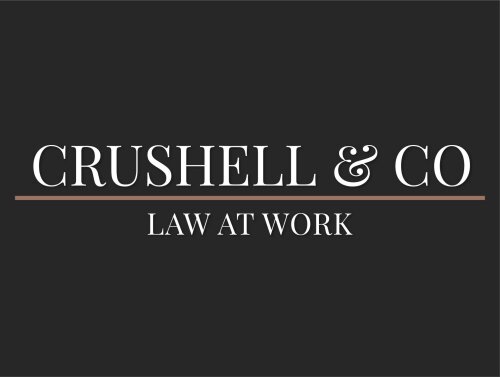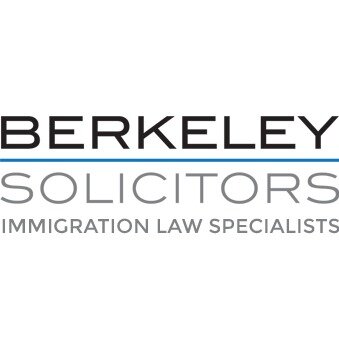Best Permanent Residency Lawyers in Dublin
Share your needs with us, get contacted by law firms.
Free. Takes 2 min.
List of the best lawyers in Dublin, Ireland
About Permanent Residency Law in Dublin, Ireland
Permanent Residency (PR) in Dublin, Ireland allows non-citizens to live and work in the country indefinitely without the need for repeated visa renewals. It offers long-term stability and benefits, including access to public services, social benefits, and greater job flexibility. The process is governed by Irish immigration laws and policies, which aim to regulate the entry and stay of non-natives in Ireland. Dublin, as the capital city, is a key location for immigrants seeking PR due to its vibrant economy and diverse culture.
Why You May Need a Lawyer
Seeking Permanent Residency in Ireland can be a complex process involving extensive documentation, legal requirements, and bureaucratic procedures. Common situations where legal help may be necessary include:
- Navigating the eligibility criteria and application process.
- Dealing with visa overstays or breaches of terms and conditions.
- Appealing a decision if your application is denied.
- Understanding the impact of employment changes on your residency status.
- Ensuring compliance with local immigration laws and policies.
- Handling family reunification applications alongside a PR application.
Lawyers specializing in immigration law can provide expertise, advise on best practices, and represent you in legal proceedings, if necessary.
Local Laws Overview
Key aspects of local laws relevant to Permanent Residency in Dublin include:
- Eligibility Criteria: PR applicants need to have legally resided in Ireland for a specified period, typically five years.
- Employment Requirements: Holding a valid work permit or being employed in critical skills occupations can impact eligibility.
- Family Reunification: Provisions exist for bringing close family members to Ireland under specific conditions.
- Good Character Requirement: Applicants must demonstrate good character, often via Garda (police) checks.
- Health Insurance: Proof of private health insurance may be required to prevent unnecessary strain on public services.
- Language Proficiency: While not always mandatory, proficiency in English or Irish may enhance the application.
Frequently Asked Questions
1. What is Permanent Residency in Ireland?
Permanent Residency allows non-Irish nationals to stay in Ireland indefinitely and access certain rights similar to citizens, such as the ability to work without restriction.
2. How long do I need to live in Ireland before applying for PR?
Generally, you need to have legally resided in Ireland for at least five years to be eligible for Permanent Residency.
3. Can I apply for PR if I am on a student visa?
Time spent on a student visa does not usually count towards the residency requirement for PR. Other permissions, such as work permits, are typically required.
4. What documents are needed for a PR application?
Common documents include proof of residence, proof of employment, valid identification, police clearance certificates, and health insurance documentation.
5. How long does the PR application process take?
The processing time can vary but generally takes several months. It's advisable to apply well before your current immigration status expires.
6. Can my family members apply for PR with me?
Yes, family reunification laws allow for certain family members to apply for PR along with the primary applicant, subject to specific conditions.
7. What are the benefits of having PR in Ireland?
Benefits include the ability to live and work in Ireland indefinitely, access to certain social services, and the possibility of eventually applying for Irish citizenship.
8. Is language proficiency required for PR?
While not always mandatory, proficiency in English or Irish can strengthen your application and ease integration into Irish society.
9. Can I lose my PR status?
Yes, PR status can be revoked due to prolonged absence from Ireland, criminal activity, or breaches of visa conditions.
10. What should I do if my PR application is denied?
If your application is denied, you can appeal the decision. Consulting with an immigration lawyer is highly recommended to understand your options and strengthen your case.
Additional Resources
For more information and assistance, you can refer to the following resources:
- Department of Justice and Equality - Immigration Service Delivery
- Citizens Information - Immigration and Residency
- Irish Naturalisation and Immigration Service (INIS)
- Local immigration law firms specializing in residency and visa services
- Non-governmental organizations (NGOs) offering support to immigrants and refugees
Next Steps
If you need legal assistance for Permanent Residency in Dublin, Ireland, consider the following steps:
- Schedule a consultation with an immigration lawyer to discuss your situation.
- Gather all necessary documents and information related to your residence and employment in Ireland.
- Understand the specific requirements and eligibility criteria for PR applications.
- Prepare and submit your application, ensuring all documentation is complete and accurate.
- If needed, seek legal advice for appealing a denied application or addressing any complications that arise during the process.
Having professional legal support can greatly increase your chances of a successful Permanent Residency application, providing peace of mind and guidance throughout the process.
Lawzana helps you find the best lawyers and law firms in Dublin through a curated and pre-screened list of qualified legal professionals. Our platform offers rankings and detailed profiles of attorneys and law firms, allowing you to compare based on practice areas, including Permanent Residency, experience, and client feedback.
Each profile includes a description of the firm's areas of practice, client reviews, team members and partners, year of establishment, spoken languages, office locations, contact information, social media presence, and any published articles or resources. Most firms on our platform speak English and are experienced in both local and international legal matters.
Get a quote from top-rated law firms in Dublin, Ireland — quickly, securely, and without unnecessary hassle.
Disclaimer:
The information provided on this page is for general informational purposes only and does not constitute legal advice. While we strive to ensure the accuracy and relevance of the content, legal information may change over time, and interpretations of the law can vary. You should always consult with a qualified legal professional for advice specific to your situation.
We disclaim all liability for actions taken or not taken based on the content of this page. If you believe any information is incorrect or outdated, please contact us, and we will review and update it where appropriate.













